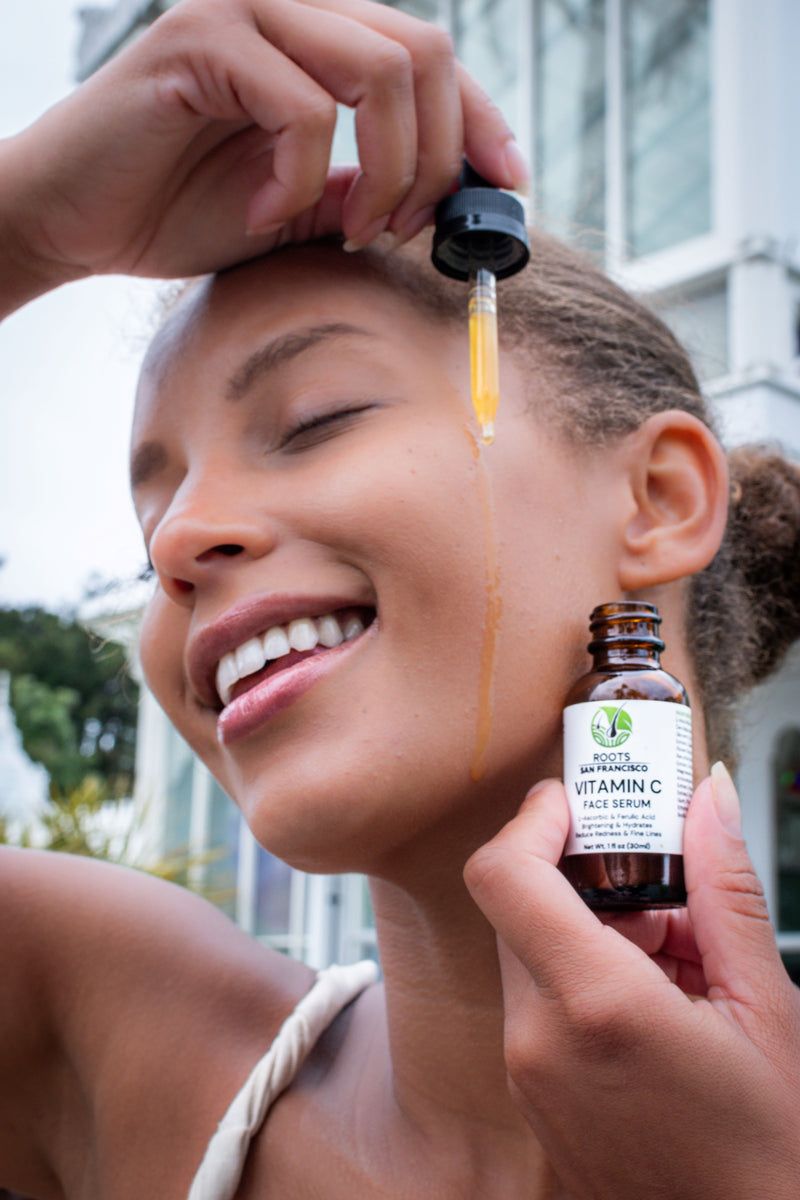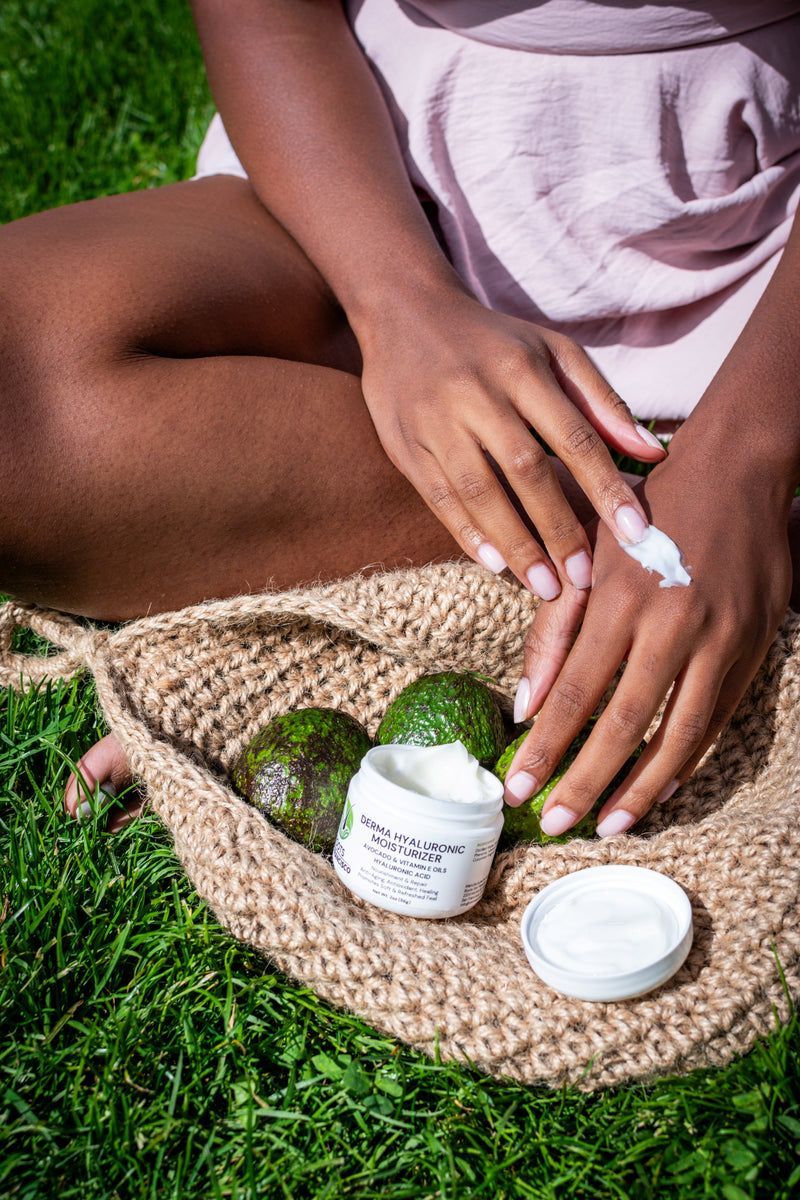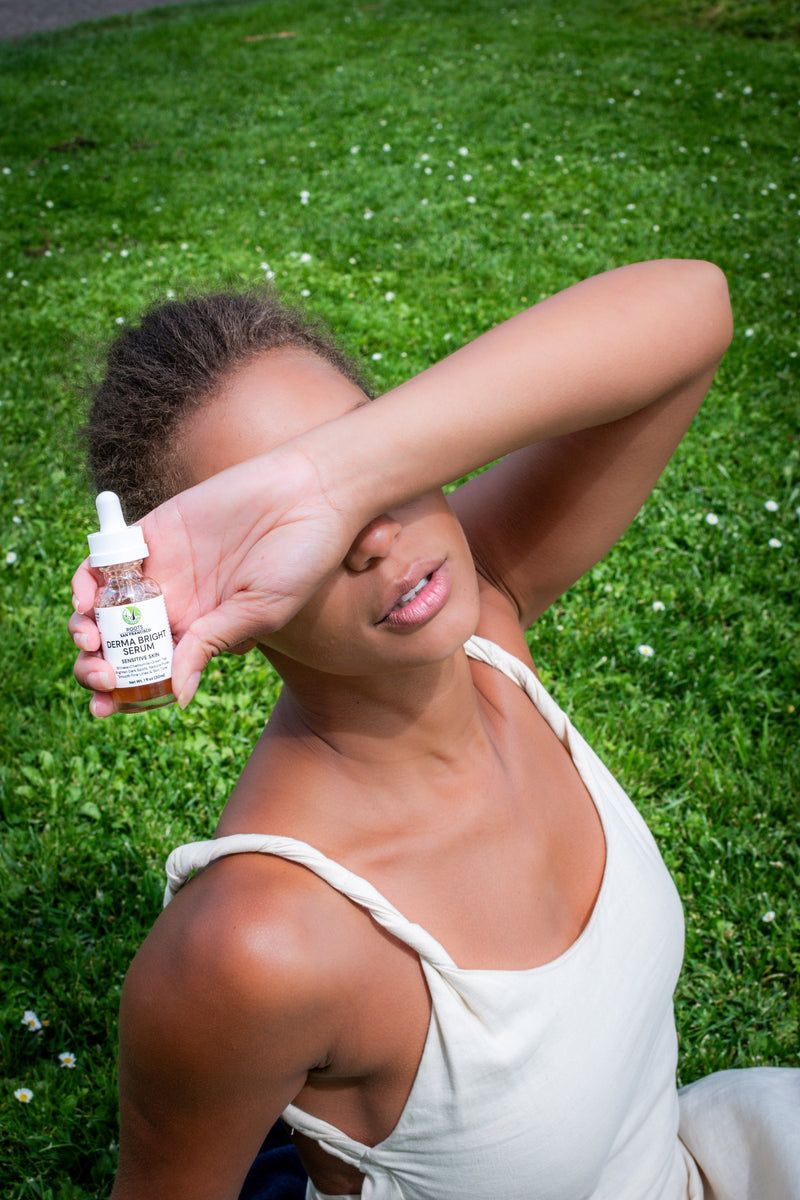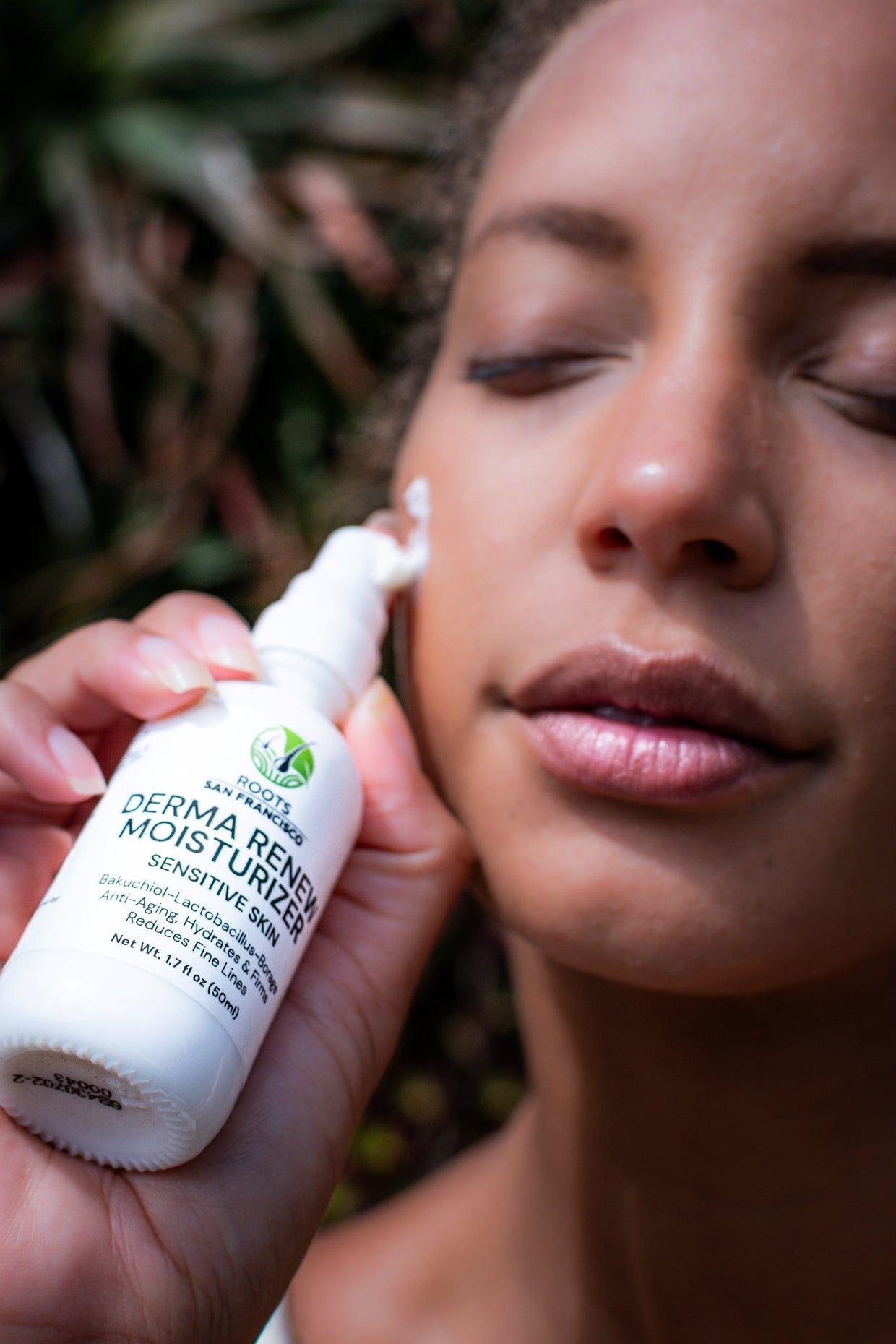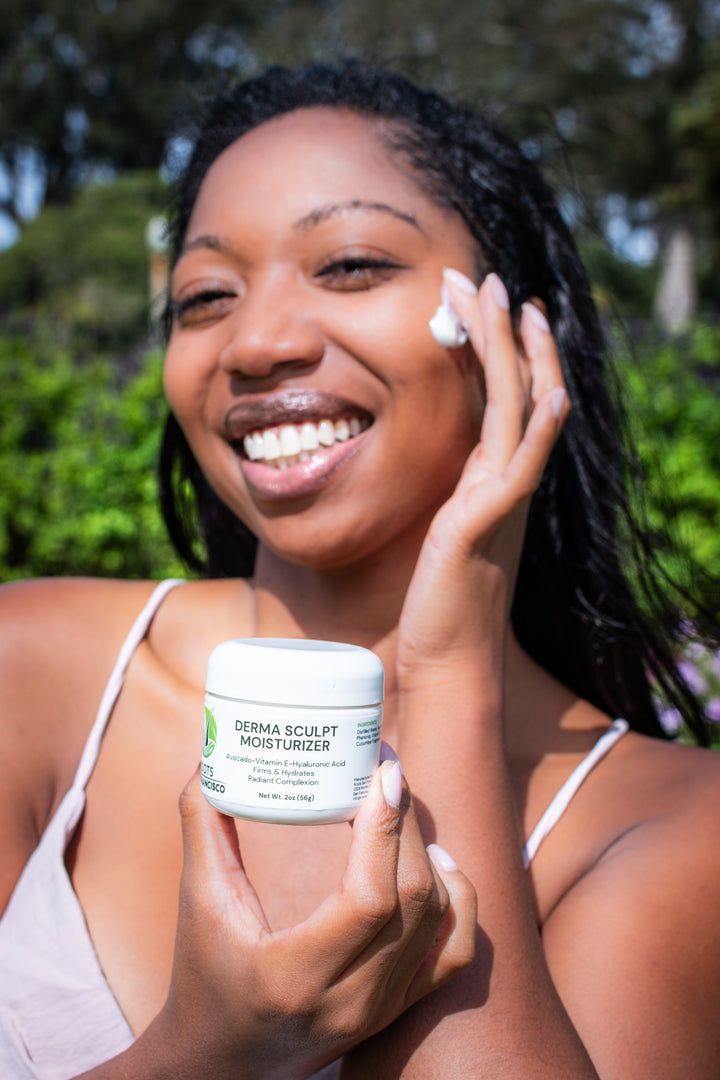Vitamin C Serum vs Cream: Why Form Matters and How to Choose the Right One
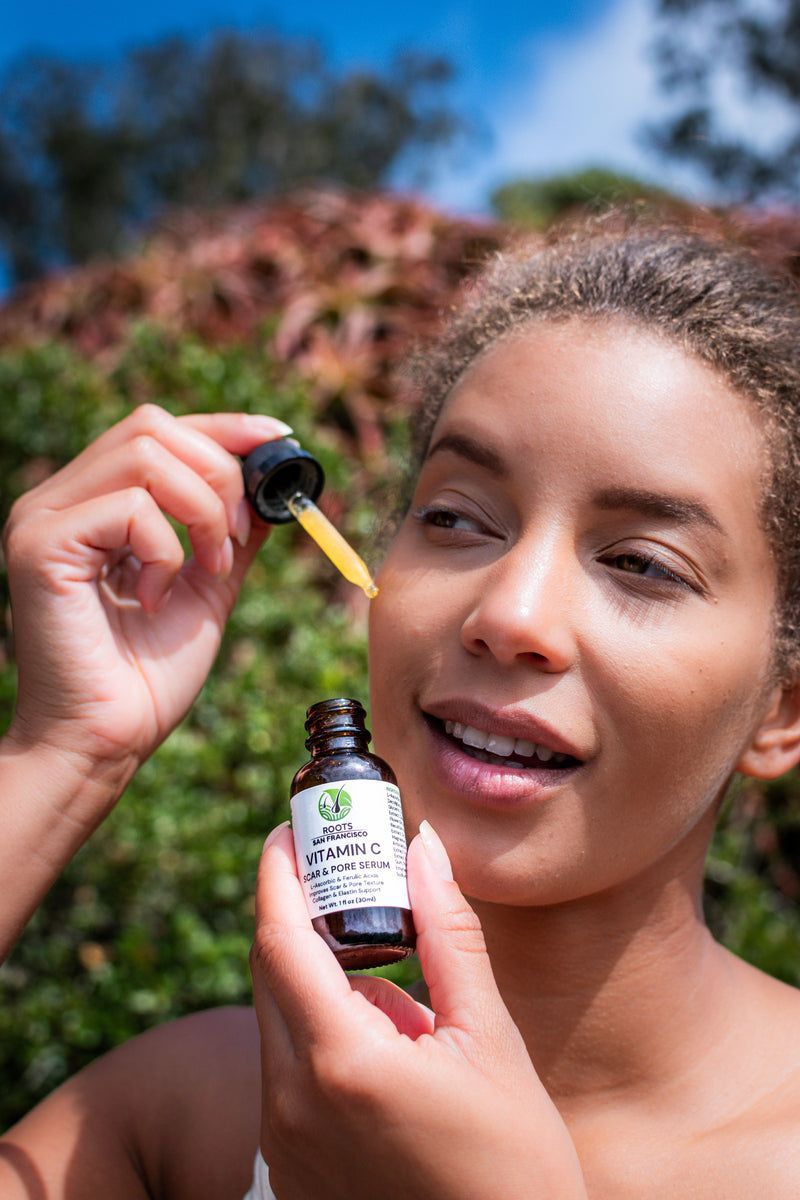
Many dermatologists consider Vitamin C their top pick for its anti-aging, hydrating, and skin-firming benefits. I also swear by it! But choosing between vitamin C serum vs cream is a common predicament for those who want to add it to their skincare routine.
Here's a short answer: Serum wins in terms of effectiveness. It's highly concentrated, so it penetrates deeper into the skin. Cream is still a great option if you need something gentler and more hydrating. In this article, discover the differences, which one should you use, and how they can work together through layering.
Vitamin C Serum vs Cream at a Glance
| Vitamin C Serum | Vitamin C Cream | |
|---|---|---|
| Concentration | Higher (10-20%) for quick results | Lower for gentler formulation |
| Texture | Light, water-like | Thicker, greasy |
| Absorption | Faster and deeper | Slower and surface-level |
| Skin Type | Great for oily and acne-prone skin | Ideal for dry skin |
| Shelf Life | 3-6 months (opened), 6-18 months (unopened) | Same shelf life as serums |
| Usage | Once or twice daily (morning and/or night) | Once or twice daily (morning and/or night) |
Key Differences and Similarities
Topical vitamin C skin care products , such as serums and creams, are MVPs for solving many skin concerns. Apply vitamin C in a face cream or serum to target common issues while keeping it safe for most skin types. Vitamin C acts as an antioxidant and fights free radicals to reduce oxidative stress, which speeds up aging and dullness.
Vitamin C also supports brighter, more even skin by wiping out dark spots and smoothing fine lines and wrinkles. One study shows that combining vitamin C with sunscreen improves protection against sun damage.
Add it to your routine to hydrate, brighten, and tackle skin concerns.
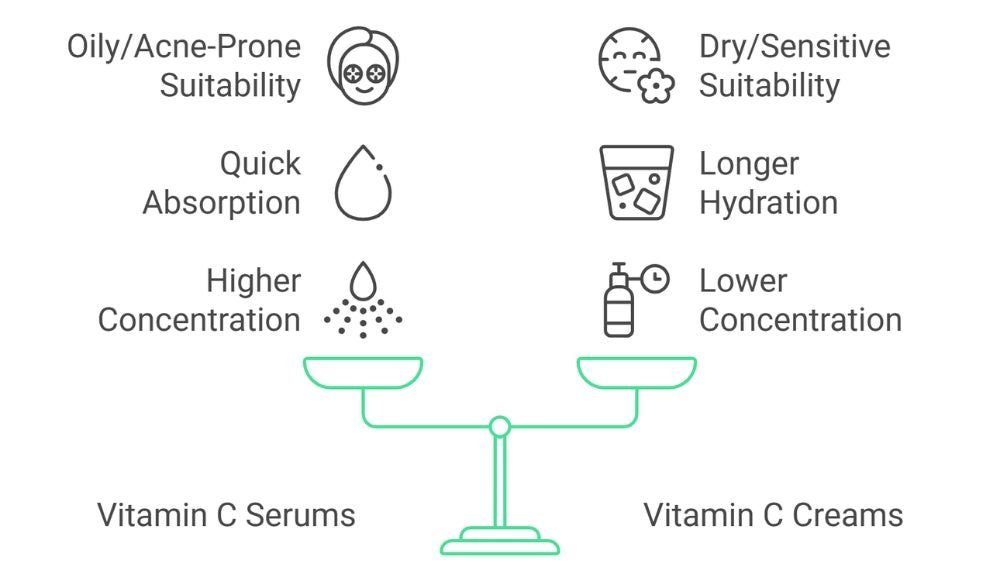
Concentration of Vitamin C
Vitamin C serums are more concentrated than creams. The effective ones are around 10% to 20%. That explains why they work well for specific skin issues. For example, vitamin C face serums can provide faster results for hyperpigmentation.
But this higher concentration of active ingredients comes with a possible side effect. Irritation can occur for sensitive skin or when using serums with concentrations above 15%.
On the other hand, Vitamin C cream isn't as fast-acting as serums. Creams often use derivative forms of vitamin C, which are less concentrated and gentler. This type of skin care product is more useful as a moisturizer. It softens your skin and adds a barrier to block water loss.
Texture and Absorption
Vitamin C serums are lighter and more fluid; creams are thicker (and can be greasy).
Serums are mostly water-based. They absorb quickly and deeply penetrate the skin. That makes them easy to layer with other skincare products, such as moisturizers or sunscreens.
Meanwhile, creams combine water, fatty oils, and glycerin as their basic ingredient. Oil prevents water molecules from escaping your skin and keeps it hydrated for longer. But they become too big to sink into the inner layers.
Skin Type Suitability
Vitamin C works for all skin types. Anyone can use it to brighten skin, help with collagen production, reduce the appearance of fine lines, and improve texture. Even so, the formulation of serums and creams can make one better suited for certain skin types.
Serums work well for oily and acne-prone skin. They don't clog pores and only give short-term hydration. No excessive shine or breakout concerns for you.
Cream suits dry and sensitive skin. They lock in moisture and prevent water loss. Enjoy smoother skin with a vitamin C cream.
Shelf Life
Vitamin C creams and serums last 3-6 months (opened) or 6-18 months (unopened).
This active ingredient oxidizes faster than others and reacts to light, air, and temperature changes. Proper storage prevents the formula from degrading and slows down oxidation. So, keep your skincare product in:
- A cool, dry place away from direct sunlight
- A cabinet or drawer to avoid temperature fluctuations
- (For serums) Its original amber or dark-tinted bottle to block light exposure
Remember to also tighten its cover after every use to limit air exposure.
Usage and Application
Vitamin C serums and creams are safe (and recommended) to apply once or twice a day.
The best practice for serums involves using them after cleansing and toning. Apply it in the morning to protect your skin from sun damage and at night to repair skin cells .
Vitamin C moisturizers and creams also work best in the morning and at night for consistent hydration.
Our Recommended Vitamin C Serum
Want to get an effective Vitamin C serum for your routine? Here are some from Roots San Francisco:
Vitamin C Serum vs Cream: Pros and Cons
Below are the good and the bad sides of both Vitamin C serums and creams:
Vitamin C Serum Pros
- More effective than other skin care items because of the high concentration
- Formulated to be fast-absorbing and deeply penetrates the skin
- Lightweight and perfect for layering
- Doesn't clog pores and is non-greasy
- Great for solving specific skin concerns like uneven skin tone and dullness
Vitamin C Serum Cons
- Can irritate people with dry and sensitive skin
- Vitamin C serums are very sensitive to light and changes in temperature
- Oxidizes faster than other products
Vitamin C Cream Pros
- Moisturizes skin better than serums do
- Gives long-lasting hydration for smoother skin
- Improves skin barrier
- Has gentler ingredients and is great for sensitive skin
- Helps lock in moisture throughout the day
Vitamin C Cream Cons
- Less effective than serums because of low vitamin C concentration
- Slower visible changes
- Can feel heavy and greasy because of its texture
Should You Use a Vitamin C Serum or Cream?
I recommend serums for quicker results. Many studies have already shown how effective they are in penetrating layers of your skin and solving particular concerns.
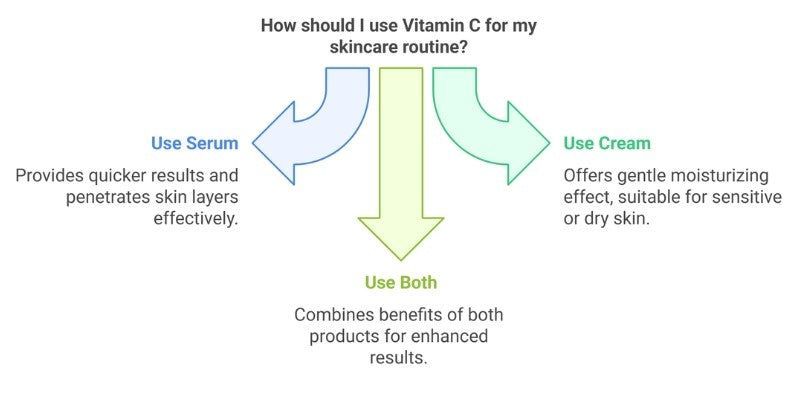
It takes a couple of weeks to see slight changes but about three months to notice huge improvements in dark spots, dullness, fine lines, or uneven tone. Regular application helps maximize these benefits over time.
Creams are still useful, though. I won't discourage you from using them, especially if you have sensitive and dry skin. Some find serums too strong for their skin and prefer creams for their gentler formulation. Creams work well if you need a more moisturizing effect and just want to maintain a healthy, hydrated skin barrier without focusing on specific concerns.
Use both for the best results. Vitamin C serum and cream can work together through layering, which means applying products in a specific order for better absorption and effectiveness.
Evaporation is a common issue with a vitamin C serum. Layering it with moisturizer can help lock in the active ingredients.
How to Use (and Layer) Vitamin C Serum and Vitamin C Cream
Follow the steps below to get the best of both worlds:
Morning Routine
- Wash your face with a good cleanser to remove the dirt and excess oils from it. Thorough cleansing can make the serum seep through layers of your skin without any hindrance.
- Use a toner to balance your skin's pH level. Pick gentle ones and avoid using those with AHA, BHA, and acid that may react or destabilize vitamin C.
- Apply 2-4 drops or a pea-sized Vitamin C serum to your face. Pat it gently and wait for complete absorption.
- Follow it up with the Vitamin C cream. Put a nickel-sized amount on your palm and spread it over your face and neck.
- And our fave step! Top it off with sunscreen. Go for those with SPF 30 or 50. A sunscreen adds a layer of protection from UV damage and keeps the effectiveness of vitamin C longer.
Most dermatologists (and I) vote for using Vitamin C products in the morning to take advantage of their antioxidant power and fight against free radicals.
Night Routine
- Remove your make-up and wash your face. Double cleanse to remove any impurities and give way to the Vitamin C serum.
- Apply toner as an option here. You can use the same one from your morning routine.
- Grab your Vitamin C serum bottle, squeeze two to four drops, and pat it on your face. You can also use it on your neck, chest, and hands.
- Next, finish it off with Vitamin C cream as a moisturizer or choose a different one like Vitamin E (this works well with Vitamin C!)
Do you know what nighttime is for your body? Repair time! And Vitamin C helps with this process through collagen stimulation and damage restoration. It works hand-in-hand with your skin's recovery cycle.
FAQs About Vitamin C Serums and Creams
Why is vitamin C darkening my skin?
Vitamin C can darken your skin if it oxidizes before application. It turns into something that reacts to air, light, or heat. Store your vitamin C products in airtight containers, away from sunlight and heat to avoid this.
Can I use vitamin C serum and cream together?
Yes. You can use vitamin C serum and cream together. But remember this rule: "Serum before cream like primer before makeup." The serum is effective in treating specific skin concerns. Meanwhile, cream seals the active ingredient to your skin.
What happens when I stop using vitamin C serum?
Your skin may start becoming dull and lose its antioxidant protection over time. Environmental damage like UV rays and pollution can impact your skin more without vitamin C.
Can I skip moisturizer and use sunscreen after vitamin C serum?
Yes. You can skip moisturizer and apply sunscreen directly after vitamin C serum. However, we only advise this if you have oily skin and don't need that extra hydration. If your skin feels dry or tight, moisturizer or cream is non-skippable to prevent dryness.
Who should avoid vitamin C serum and cream?
Vitamin C serum and cream are a no-no for people with overly sensitive skin and those with some skin conditions. Vitamin C can cause irritation in eczema patients. But some experts believe it’s good for those with rosacea as it can reduce inflammation.
Final Verdict: Vitamin C Serum or Cream?
Vitamin C serum and cream are amazing options to get that bright, glowing, and smooth skin you want! But here at Roots San Francisco , we vouch for serums for their effectiveness in delivering results. That's why we offer our own organic, vegan, and paraben-free vitamin C serums.
Vitamin C creams still deserve its spotlight and confetti! They moisturize and (like a superhero) protect your skin by improving your skin barrier.
Use Vitamin C serum if:
- You want dark spots and fine lines to *poof* into the air.
- You need results chop-chop.
- You have oily skin and prefer lightweight, fast-absorbing products.
- You want to layer it with other skincare items seamlessly.
Use Vitamin C cream if:
- You have dry or sensitive skin needing extra hydration.
- You prefer gentler formulations.
- You want long-lasting moisturization throughout the day.
- You need a cream to complement your nighttime routine.
- Why settle for one when they work great together? Use them both and see how they’ll work like magic to your skin!
